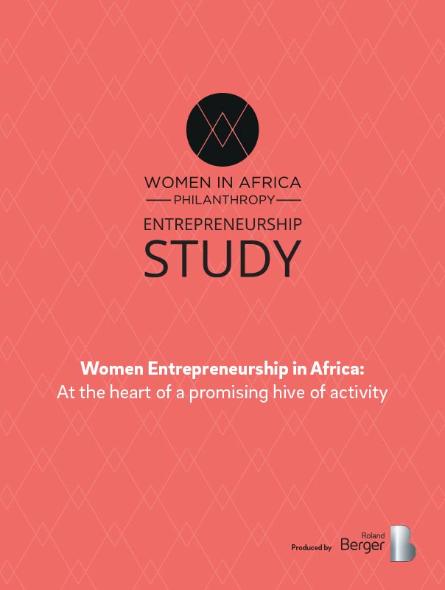African continent makes entrepreneurship a factor of emancipation
![{[downloads[language].preview]}](https://www.rolandberger.com/publications/publication_image/Roland_Berger_482_Women_in_Africa_Opus_6_Cover_download_preview.jpg)
In Africa, entrepreneurship is a real source of empowerment for women and offers interesting opportunities for economic growth.


In Africa, entrepreneurship is a real source of empowerment for women and offers interesting opportunities for economic growth. With the highest rate of female entrepreneurs in the world (24%), the African continent makes entrepreneurship a factor of emancipation.
For the second year in a row, Roland Berger and Women in Africa Philanthropy have joined forces to further their reflection on women's entrepreneurship in Africa. Who are these entrepreneurs? What are their motivations and the obstacles to their development? How do they view their involvement as entrepreneurs or ordinary women?

While men seek to become their own boss and gain independence when they embark on entrepreneurship, women are guided by the search for positive impact (84%) with a deep desire to change the world and their environment. Ultimately, women entrepreneurs do not create their businesses for the purpose of enrichment: only 16% of the students and professionals surveyed cite "becoming rich" as one of the goals of their commitment.
Women entrepreneurs believe that they have embarked on entrepreneurship by choice: only 9% cite unemployment, and therefore necessity, as a determining factor. On the other hand, more than 30% of the men surveyed set up their startup because they could not find a job.
A lack of training: Women still complain about their lack of technical and sectoral training. Expenditure on education per person is quite low. Unfortunately, girls and boys are not on an equal footing in terms of access to education, with the literacy rate for men being 1.3 times higher than that of women on average. Men are also 1.9 and 2.5 times more likely to have completed secondary and post-baccalaureate education than their female counterparts.
Too little support: Many respondents report a lack of external support. Africa has 36 times fewer incubators and accelerators than North America and 17 times fewer than Europe, while the entrepreneurial population is much larger. On the financial side, the guarantees required by banks and high interest rates charged when taking out a loan necessarily hinder bank financing. However, technology venture capital financing is growing rapidly from an annual growth rate of 53% in 2017 to 108% in 2018, reaching USD 1.63 billion.
Gender inequalities: Overall, women entrepreneurs feel disadvantaged compared to male entrepreneurs, a perception not shared by the latter. Only 36% of men believe that women are disadvantaged, compared to 70% of women.
Improving girls' and women's education: For Gladys Nelly Kimani, incubators and accelerators should seek to provide training in marketing and finance: "For example, a course on how to pay taxes would have been very useful." A large majority of the entrepreneurs surveyed (93%) also cite technical training as necessary for the development of female entrepreneurship.
Strengthening professional structures: Getting the right information at the right time is extremely difficult and is a major constraint on the creation of new businesses. 78% of women surveyed confirm that the process of accessing finance must be simplified. In their view, governments should also launch new economic and industrial policies to support entrepreneurs.
Improving financial and telecommunications infrastructure: As the 2018 study showed, the establishment of adequate infrastructure would facilitate the development of entrepreneurial projects. The development of telecommunications infrastructure is essential to encourage female entrepreneurship (the correlation coefficient between ease of doing business and 3G network coverage reached 54% in 2018). In order to promote entrepreneurship, these structures must facilitate administrative procedures, set competitive prices and shorten the total duration of processes.

![{[downloads[language].preview]}](https://www.rolandberger.com/publications/publication_image/Roland_Berger_482_Women_in_Africa_Opus_6_Cover_download_preview.jpg)
In Africa, entrepreneurship is a real source of empowerment for women and offers interesting opportunities for economic growth.